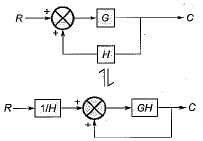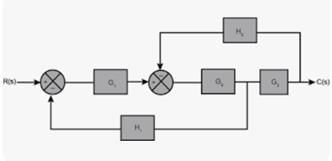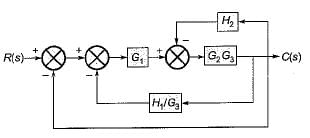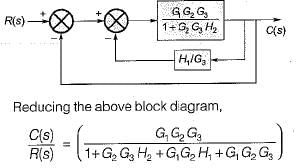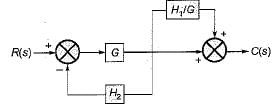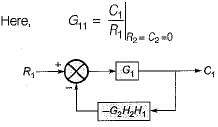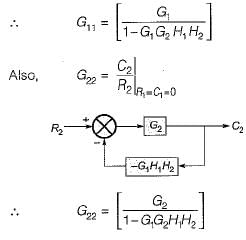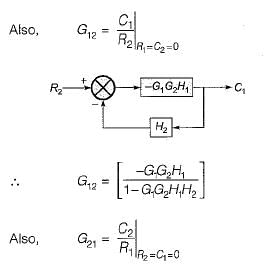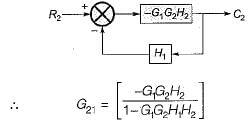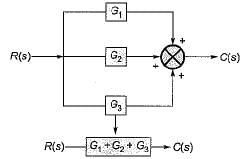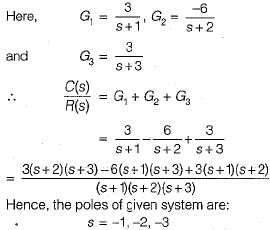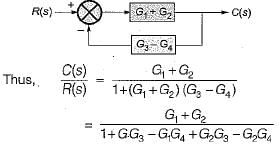Test: Block Diagrams - Electronics and Communication Engineering (ECE) MCQ
10 Questions MCQ Test - Test: Block Diagrams
Which one of the following block diagrams in options given is equivalent to the below shown block diagram?


Consider the following statements:
1. Transfer function is an expression which relates output to input in s-domain.
2. Transfer function gives information about the internal structure of the system.
3. A system can be represented by the block diagram if the transfer function of the system is known.
4. Block diagram is the flow of system variables from one block to another block represented by a single line.
Q. Which of the above statements is/are true?
1. Transfer function is an expression which relates output to input in s-domain.
2. Transfer function gives information about the internal structure of the system.
3. A system can be represented by the block diagram if the transfer function of the system is known.
4. Block diagram is the flow of system variables from one block to another block represented by a single line.
The transfer function C(s)/R(s) for the system described by the block diagram shown below is given by:
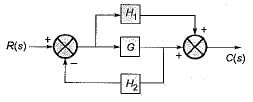
The transfer matrix for the multi input-multi output (MIMO) system represented by the block diagram shown below is given by
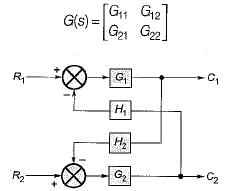
Match List-I with List-II and select the correct answer using the codes given below the lists:
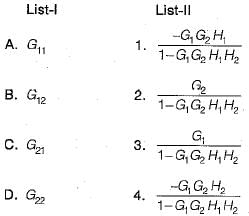
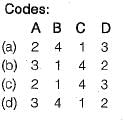
Consider the three block diagrams A, B and C shown below.
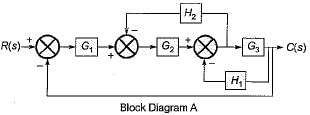
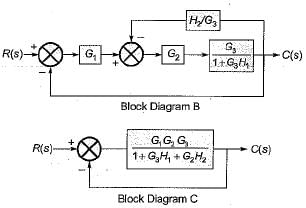
Q. Which one of the following statements is correct in respect of the above block diagrams?
The poles of the transfer function C(s)/R(s) of the system represented by the block diagram shown below are located at
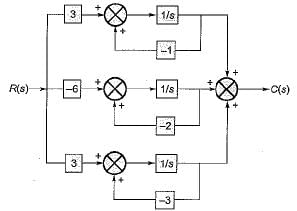
The transfer function C(s) / R(s) for the block diagram shown below is
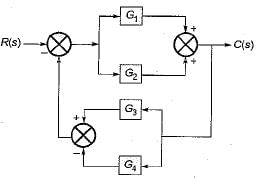
The value of for the system described by the block diagram shown in figure below Is.
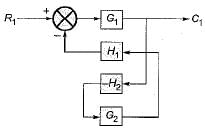
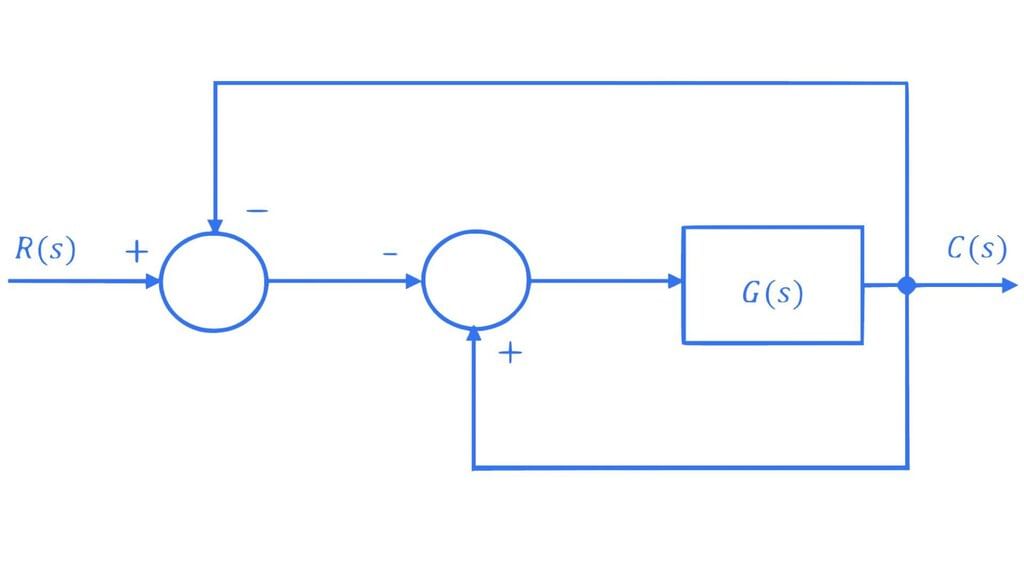
For the block-diagram shown in the figure, the transfer function C(s)/R(s) is



